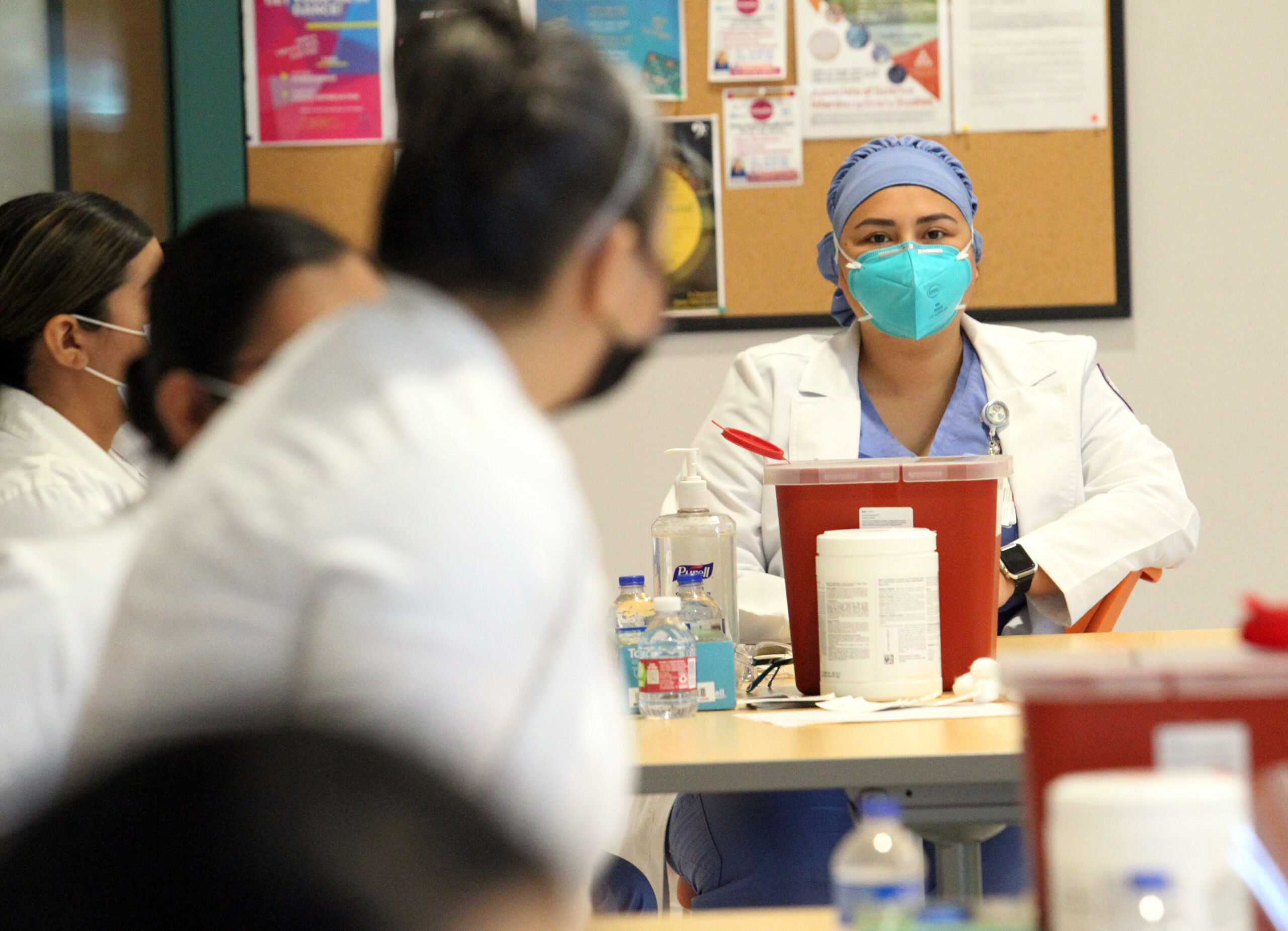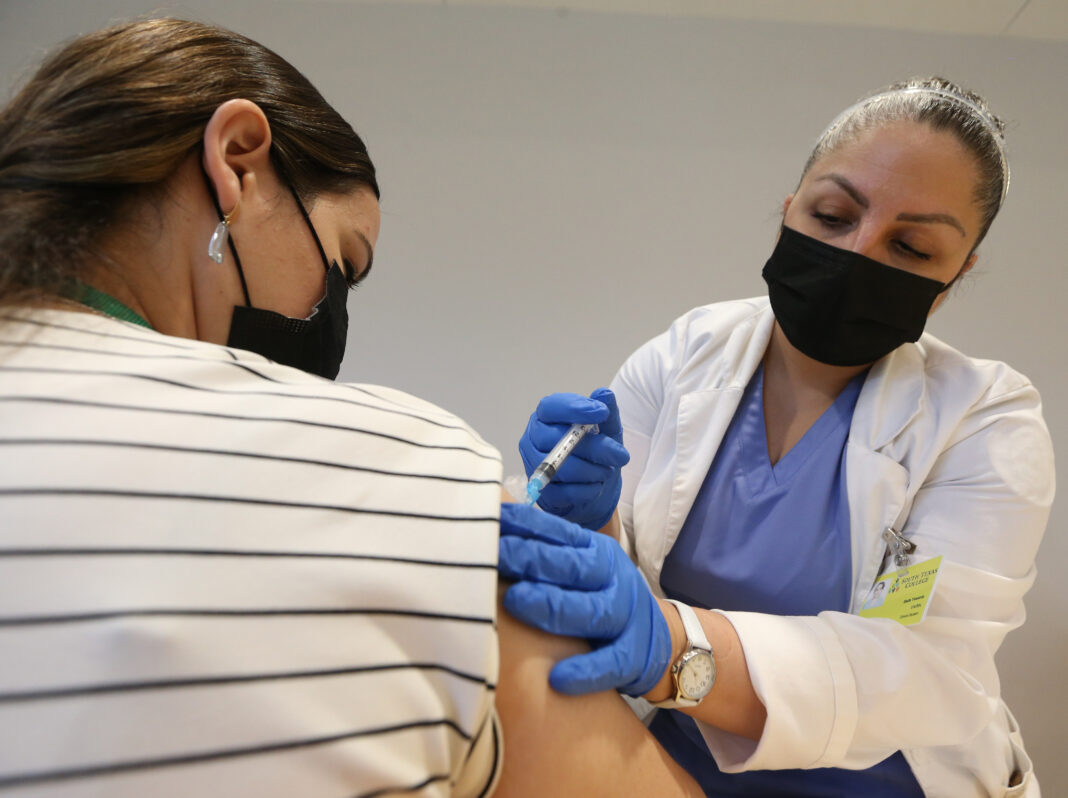South Texas College, in collaboration with Hidalgo County, held a vaccine clinic this week on Monday and Wednesday in order to not only help lessen the spread of COVID-19 but also to help educate the community on vaccines and the virus.
The clinic was held at STC’s Pecan campus in the Student Union Building where several volunteers waited for anyone willing to get vaccinated.
A few, currently enrolled students and staff members arrived to get their shots though the clinic was open to the public.
Javier Valdez, a 22-year-old first-year student studying for an emergency medical service certification, initially saw no reason to get vaccinated as he rarely went out, but made the decision to do so due to his studies.
“Since I was going to be in the EMS (program), I would be in front of people so I (thought) it would be, pardon the word, but a dumb choice not to be vaccinated and prevent any future cases,” Valdez said.
Valdez feels inclined to put his faith in the field of medicine due to his choice of vocation but cites the history of vaccinations for other diseases, such as influenza, as reasons to get vaccinated saying that the opportunity to prevent damage to your immune system should be taken.
The clinic had seen a combination of about 28 individuals who sought the vaccine between Monday and the first hour of being open on Wednesday.
Dr. Jayson Valerio, dean of nursing and allied health at STC, said the low number of people visiting the clinic was expected because those who want to be vaccinated have already been, but they are currently dealing with what he calls “vaccine-hesitant” people.
Hesitancy is one of the most common factors seen among those who are currently unvaccinated and the reason for the Nursing and Allied Health’s team’s efforts in educating the public.
“This year, our priority is to educate our community members and hopefully dispel the myths about the COVID-19 vaccines,” Valerio said. “Also, we can provide them the importance of getting the COVID-19 vaccine and mitigating and stopping this pandemic.”
One method currently being used to help the community is having the Hidalgo Vaccine Acuity Committee, in which STC is part of, gather data by zip code to see which areas have a higher percentage of unvaccinated residents and figure out what is causing the reluctance in getting vaccinated.

With the information gathered and the causes more understood, Valerio believes the committee’s approach to help with the education would be more targeted.
What the data has shown so far is that a lot of hesitancy is created due to online misinformation.
“To tell you honestly, it’s about the different campaigns and what they hear and what they see on social media,” Valerio said.
STC accountant Melissa Lozano, who had taken the opportunity to walk between buildings in order to receive the vaccine, said she was originally hesitant due to misinformation, echoing Valerio’s words.
“I’m not going to lie, I see a lot of things on social media mostly and also the news,” Lozano said. “I did consult my doctor, I did want to have some sort of feedback from professionals.”
The 25-year-old had recently recovered from COVID-19 which she said only made her feel really sick but her husband, who suffers from high blood pressure and is on the heavier side, was hospitalized for a week, received a plasma donation after injections of steroids weren’t helping his condition and had to be on an oxygen tank for the remainder of the month he caught the virus.
Though still hesitant after their ordeal, the couple still decided it was best to get vaccinated after waiting a three month period since catching the virus.
Lozano had only made the decision after receiving a second opinion from a doctor because she was afraid the vaccine could complicate a future pregnancy.
Currently, the CDC has permitted a third shot for those who are immunocompromised, receiving cancer treatment or are HIV-positive.
For those who don’t fall under those conditions, Valerio said the CDC is currently getting permission on the federal level to give these booster shots to the public and is suggested to receive them 8 months after a person’s last dose.





